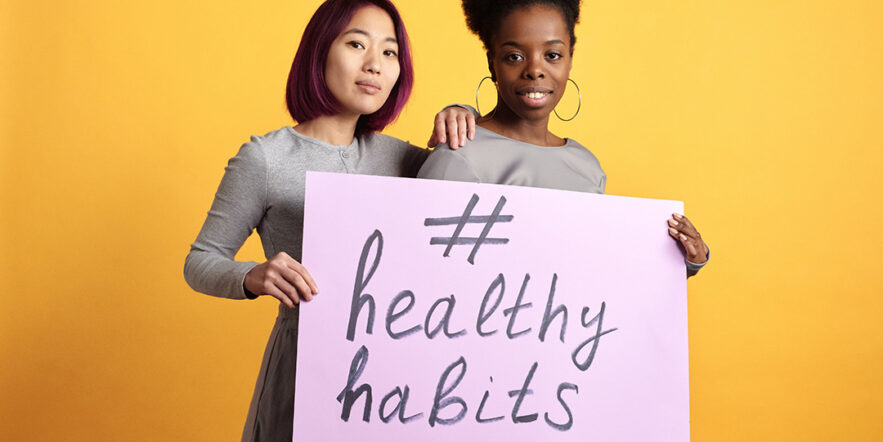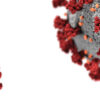The pandemic has been hard on just about everyone. Managing grief and anxiety, while being socially isolated, is no small feat. In some cases, though, quarantining has propelled people to build and maintain new, positive habits they hope to carry into the post-pandemic future.
MedShadow asked readers which healthy rituals they’ve picked up and also checked in with two of our medical advisory board members to assess the habits. The board members are: Lillie Rosenthal, DO, a physical medicine and rehabilitation physician, and Candida Fink, MD, a child and adolescent psychiatrist.
Before diving into the advice, Fink emphasizes that “building new habits is never easy, and that for many people, during COVID-19, maintaining their basic functioning has been challenging enough.” It’s crucial for people, she adds, “to be compassionate with themselves for however they are surviving. If trying something new feels good, that’s great. If they are just managing, that’s perfectly OK.”
The habits, below, came from readers who anonymously responded to our survey. If you would like to send us your ideas, click here. We’ll update this article as we hear from more of you.
Healthy Habit #1: Engaging in Light Aerobic Exercise and Enjoying Nature
Many of our readers got in the habit of regularly strolling outside. Some said they started hiking. “It felt safe, largely, [because of] not encountering other people,” on the trails, one wrote. Others take walks around parks or neighborhoods close to home. “I found a new appreciation of trees, flowers and water by walking along the river that runs through my city,” wrote another person.
Fink says that “moving your body in any way is a positive thing,” as is getting outside. Hike in the park, walk around the block or even “sip your coffee on a bench or porch.”
If you get your exercise outside, there are multiple bonuses, Rosenthal explains. First, you’re much less likely to contract COVID outdoors than you are inside a gym. Second, “we know that nature gives the boost to [the benefits of physical] activity.” Since walking is so accessible to most people, she often prescribes to her patients a daily hour of walking in nature.
Fink adds that even one minute of stretching in place or walking up and down the stairs can be beneficial for mental and physical health.
Healthy Habit #2: Pursuing New Interests and Taking Classes
Readers reported writing books, meditating and taking classes in a variety of topics, like singing, was helpful.
Fink says new hobbies are great as long as you have the “interest and time, and they are done ‘COVID safely.’ Virtual versions may still be best for a little while longer.” Rosenthal explains that learning and trying new activities are “super positive things” that can promote neuroplasticity — the growth of new neuronal connections in your brain that can help stave off cognitive decline.
Healthy Habit #3: Connecting With Close Friends and Family
Readers said they took advantage of virtual options like Zoom for connecting with friends and family. In many cases, they also reached out to people who are important to them, but with whom they had lost touch.
During the pandemic, “everything’s a risk-benefit calculation,” says Rosenthal. We have to decide who we spend time with, and maybe prioritize “less frequent, but more meaningful connections.” Reaching out to friends and family you’re close to can help your mental health as well as theirs. However, socializing and Zoom calls can exhaust some people. Fink adds that “it’s OK to say ‘no’ [to meeting in person or over Zoom], if you’re overwhelmed,” or if the person who’s asking is someone you need to avoid.
Healthy Habit #4: Cooking at Home More Often and Using Herbs
Some readers said they have started meal planning and cooking all their meals at home. One took time to learn more about herbs and started incorporating them into her dishes.
“There’s been a shift towards home-cooking,” says Rosenthal, “which is always a good thing.” She adds that using herbs is a fantastic way to bring extra flavor to food in a healthy way. Some herbs have anti-inflammatory properties. Fink says that cooking at home can be “fun and creative.”
Fink adds that while cooking is “lovely for most people,” it can be overwhelming for others. What’s most important is to feed yourself, and, possibly, to enjoy the lovely food aromas in your home. If shopping, cooking and cleaning are too much for you, “a nice fragrant tea or new type of coffee could bring a similar feeling.” If you want to start simply, she says, “take a rotisserie chicken and squirt [on] some lemon juice or [add] an herb [to it]– and voila, bon appetit.”
Healthy Habit #5: Setting Up a COVID-Safe Station at Your Entrance
We’ve learned a lot throughout the pandemic. Now we know the virus rarely spreads from contact with surfaces, like countertops and doorknobs, but frequently through aerosolized droplets. That means that the most important thing you can have at a COVID station is “masks for grabbing on the way out,” says Fink. You could also have disposable, single-use masks for guests, especially if you have an immunocompromised person in your home, says Rosenthal. Still, if any other tools like bleach wipes, gloves and hand sanitizer make you [feel] more comfortable, add those to your entranceway. After all, they will protect you from the flu, too.
“Another thing to consider, which would be a very valuable thing, is ventilation, opening windows at home,” says Rosenthal. As long as the air outside is healthy to breathe (if you live near wildfires, for example, it may still be best to keep them closed).
MedShadow would love to hear more about which new habits you’ve picked up to improve your health or manage pandemic stress. Please fill out our form, leave a comment or use our contact form.






